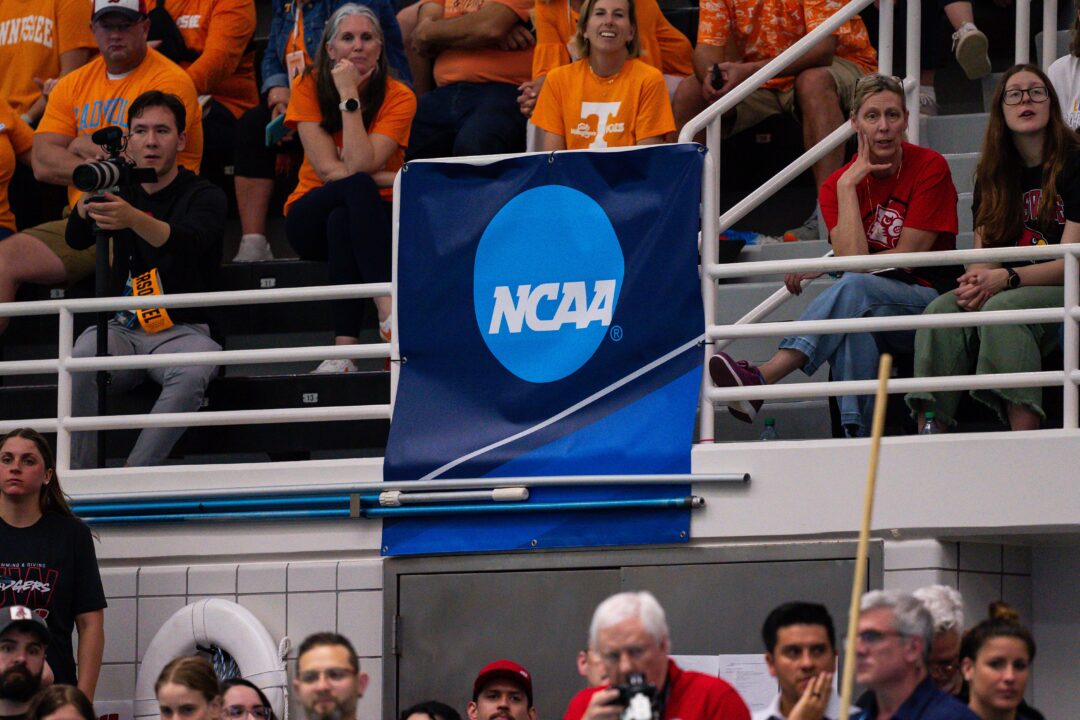The Knight Commission on Intercollegiate Athletics held its 2025 spring meeting on Tuesday in Indianapolis, featuring a conversation with NCAA President Charlie Baker and a second segment where the future of collegiate Olympic sports was discussed.
The commission, which is an independent organization that advocates for reforms to ensure college athletics programs operate in ways that align with the educational missions of universities, hosted five panelists during the second session who spoke about ways to help the Olympic movement in light of the upcoming changes to the college sports model with the pending settlement in the House case.
One proposal that was brought to the table was a push for a law that would codify the NCAA sport minimum (16 for FBS schools) and require schools to maintain current average resource allocations for non-football/basketball sports, according to Yahoo! Sports’ Ross Dellenger.
American Volleyball Coaches Association CEO Jaime Gordon, who was one of the panelists at the meeting, said that currently, FBS schools allocate 65% of their budget to football and basketball and 35% to other sports, and under the proposal, this level of funding would be maintained in perpetuity, according to Dellenger.
Speaking on the panel, Gordon said that 32 Olympic sports programs in Division I have been cut since the announcement of the House settlement, a loss of 966 roster spots, not including Saint Francis University, which moved all 22 of its sports programs to Division III.
“As money has grown 400%, the sliver for Olympic sports has been remarkably the same. (They way the funding goes) puts Olympic sports at great vulnerability,” Gordon said, according to Swimming World.
Another topic addressed was the lack of federal funding to the United States Olympic & Paralympic Committee (USOPC), and how the NCAA and the USOPC should be working together for the betterment of the Olympic sports movement.
“The USOPC gets zero federal funding. The budget was less than the University of Texas’ yearly athletic budget,” USOPC Chief of Sport and Athlete Services Rocky Harris said, according to Swimming World. “The success of our athletes is obvious, but there is a threat to that. We want the national governing bodies to have a seat at the table within the NCAA model. Why aren’t we working as partners? Federal funding would be great. I would love to see it go to governing bodies.”
Arizona State Sports Historian and Clinical Associate Professor of History Victoria Jackson spoke on how international the NCAA has become, using swimming as an example, and that other national governing bodies rely on the college sports system.
USA Track & Field’s Max Siegel said “collaboration is critical” at this watershed moment and that “it is time for us to be innovative.”
“We have the opportunity to have our country experience sports they haven’t experienced in (a generation),” Harris said. “At a time where we are less unified, this is something we can all be unified about (supporting our Olympians).”
The Knight Commission, which agreed that collaboration is needed to propel Olympic sports forward, will meet again on June 10 to continue discussions.

Given the present environment, swimming’s and other sports continued reliance on the collegiate sport model is irrational. There has never been any reason for colleges to support Olympic sports other than the bad PR they would receive if the programs were cut. Obviously some programs will survive the House era but the entire developmental pathway for swimming and other Olympic sports has changed forever. We seem to be slow to pick up on this. Swimming needs a Plan ‘B’, what would the sport look like if there were no collegiate context to rely on?
More 50m pools at country clubs.
What’s the alumni donor rate for olympic sport athletes vs NARPs? I know at a lot of schools the rate is higher among the athletes’ side….
I think this is a powerful question that could have a powerful impact on a lot of the decision making that’s going on right now.
I was talking to a D1 coach about this the other day – that I think the unintended consequence of shrinking rosters might be less “lost elite swimmers who didn’t get a shot” and more “back end roster swimmers who spent more time focused on school, made a ton of money, and donated back to the program because they were grateful they got a spot.”
This is something we should all get behind. The Knight Commission has pushed real reforms before, like the Academic Progress Rate, and this one could be just as important. Locking in Olympic sport minimums and funding levels could save a lot of programs. Nearly 1,000 roster spots have already been cut since the House case dropped. This isn’t just about policy, it’s about protecting real opportunities. The swim community should get behind this initiative and fast.
Bring in revenue. Everyone protects the sport without furthering it. Want it to be successful? Easy to sit on your couch but metrics are easy to measure. Swimming does not bring in money. Why should anyone subsidize your club sport?
As the President of my college put it:
Because colleges are in the business of creating successful people and competitive swimming teaches lessons in that regard better than just about any single thing. Understanding that and valuing that is a big reason why schools that support swimming are by far more academically prestigious and rank higher in student outcomes, on average, than those that do not. For A College that is fully committed to the outcome of their students, keeping a swim team is an easy decision.